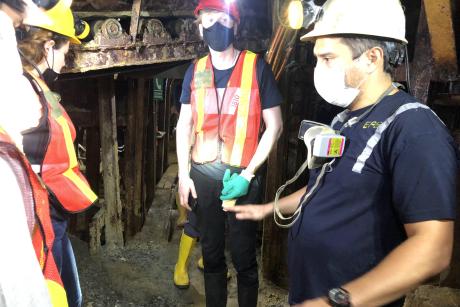By Katherine Donato
Hi everyone— Welcome to my blog about my time in Uganda for Summer 2011! For this first post, I’d like to introduce myself and the project that I’m working on. I arrived in Mbarara two nights ago after spending a couple days in the capital city, Kampala, and so far have toured around Mbarara, the city I’ll be living in for the summer, and the Kashongi and Kitura subcounties, the rural areas where my team’s work will be focused. About me.. I am a master’s student at Duke University studying Economics with a particular focus on health and development.
As an undergrad, I studied at Georgetown University and graduated in 2010 with a degree in International Economics. I’ve traveled abroad many times with my family over the years, and spent semesters abroad in Harbin, China and Taipei, Taiwan, but have never been to Africa before, so I’m really excited to be here for the first time! I’ll be working in Mbarara, Uganda for the next couple months thanks to a grant from the Duke Global Health Institute (DGHI), working with a team comprised of a couple Duke graduates and several Duke undergrads coming through the DukeEngage program.
About the project.. For the past 6 months or so, I’ve been working with a non-profit organization founded by two Duke graduates called Progressive Health Partnership (PHP). This is the third year that PHP has worked in Kashongi and Kitura, and has focused on development issues revolving around Safe Motherhood (e.g., reducing infant mortality, ensuring proper care for women during delivery, providing antenatal care) and rainwater harvesting. I will be working on the Safe Motherhood side of the team’s work.
Over the summer I hope to pilot a survey that will be administered to pregnant women seeking antenatal care at rural health clinics. Through this work over the summer, we will hopefully be able to get a clearer view of the specific needs in the community for a 10-month intervention PHP will carry out starting in September 2011. A modified version of the survey will be administered over the course of the intervention, which will serve as an “impact evaluation”. Through the data gathered in this survey, combined from information gained through focus groups this summer, we hope to gain a better understanding of how best to improve maternal and child health outcomes in these rural areas.
Major challenges seen in the past in these communities have included how to transport women who are in labor to health centers in rural areas, encouraging women with identified complications during pregnancy to seek proper care, and ensuring that health centers are consistently staffed and stocked with necessary medicines and supplies. With the rest of the team, I’ve spent the last few days learning more about the community and meeting with key community members that will be instrumental in ensuring that our work is effective. After a couple more days of orienting ourselves to the community and its needs, we’ll be able to start the work we’ve all come here for! Feel free to comment, criticize, or offer suggestions at any time. Many of us on the team are new this kind of work, and we can always benefit from the knowledge of those who have come before us!



